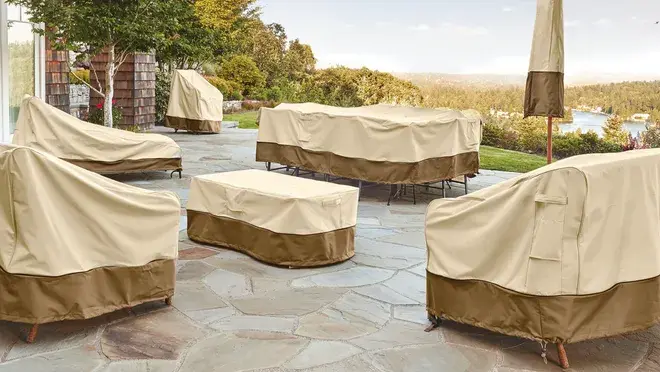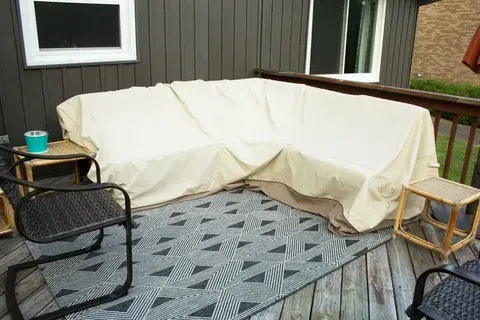Roof Safety and Hygiene with Anti-Bird Spikes in Dubai
- Maintenance indubai
- Sep 16, 2025
- 4 min read
The Challenge of Birds on Rooptops
Dubai’s modern skyline is home to stunning villas, commercial buildings, and high-rise apartments. While the architecture is breathtaking, birds—particularly pigeons—pose a constant challenge. They often gather on rooftops, ledges, and building edges, leaving behind droppings, nesting debris, and noise. Over time, this not only affects the cleanliness of a property but also creates safety hazards. Anti bird spikes have emerged as a practical, humane, and effective solution to these issues.
Why Bird Control Is Necessary in Dubai
Bird infestation on rooftops is more than an aesthetic disturbance. Droppings are acidic and can degrade building materials, which can spoil roofs, tiles, and metal fittings. Nesting material clogs gutters and drainage systems, further raising the potential for water pooling and leakages. Furthermore, droppings make surfaces slippery, which is hazardous for maintenance personnel or occupants who need to enter the roof. Managing birds is thus important for both property preservation and human safety.
Anti-Bird Spikes as an Ethical Solution
One of the greatest benefits of bird spikes in dubai is that they are ethical. Unlike toxic methods, spikes do not harm birds. Rather, spikes function as a physical deterrent by creating a problematic environment for birds to perch or nest on surfaces. This promotes birds to seek other, more secure places without harming them, consistent with ethical and environmentally friendly practices.
Sustaining Roof Hygiene with Spikes
Bird droppings are not only ugly; they are a major hygiene issue. Droppings are rich in bacteria, fungi, and parasites that can be harmful to human health. On buildings, droppings tend to build up very fast on roofs, creating odors and an unhygienic environment. Anti-bird spikes reduce roosting and nesting, greatly limiting the accumulation of droppings. This maintains rooftops clean, healthy, and more attractive throughout the year.
Preventing Building Structure Damage
The acidic properties of bird droppings are such that it can erode roof coatings, paint, and even concrete surfaces in the long term. Nesting material can clog ventilation systems, leading to additional maintenance problems. Installing anti-bird spikes ensures building integrity is maintained by discouraging such damaging behavior. In the long term, owners save on expensive repairs and add years to the lifespan of their roofs.
Safety for Maintenance and Residents
Slippery roof surfaces caused by bird droppings are a major hazard for anyone accessing the roof. This includes maintenance crews working on HVAC systems, cleaning, or inspections. Anti-bird spikes greatly reduce the presence of droppings, ensuring safer conditions for workers and residents. By lowering accident risks, spikes contribute to overall building safety and compliance with safety standards.
Designed for Dubai’s Climate
Dubai’s hot summers, humid coastal air, and occasional sandstorms demand materials that can withstand extreme conditions. Anti-bird spikes are typically made from durable stainless steel or UV-resistant polycarbonate. These materials do not rust, warp, or crack under Dubai’s climate, making them a long-lasting investment. Once installed, they require minimal maintenance while offering continuous protection.
Easy Installation on Rooftops
Anti-bird spikes are adaptable and can be fitted on nearly any rooftop surface—parapets, ledges, chimneys, beams, and even solar panel edges. Modular strips are offered that can be readily fitted with adhesives, screws, or clips. Dubai professional installers place them with precision for maximum efficiency. Installed, the spikes integrate with the architecture unobtrusively, offering protection without ruining looks.
Cost-Effective Long-Term Solution
Although bird issues would appear trivial in the beginning, the maintenance costs associated with frequent cleaning, roof maintenance, and repairs soon mount. Anti-bird spikes, although an initial investment, significantly minimize these ongoing expenses. Their long lifespan ensures that they remain effective for years, making them a highly cost-effective proposition. In comparison to constant cleaning contracts, spikes are a significantly more cost-effective method of roof cleanliness.
Improving Aesthetic Appeal of Properties
Dubai properties pride themselves on their sophistication and contemporary architecture. Bird feces and disorganized rooftops can detract from this beauty. Anti-bird spikes, as slim and discreet, do not compromise the look of a building. Rather, they maintain the neat, shiny appearance of rooftops, keeping buildings—villas or skyscrapers—looking their best.
Eco-Friendly Bird Control
In an innovative and environmentally conscious city, anti-bird spikes fit like a glove into green practices. By deterring birds without injuring them, these systems help create a sustainable urban ecosystem. These systems enable homeowners and businesses to address a pesky issue without using detrimental chemicals, traps, or netting that can have negative consequences on local wildlife.
Peace of Mind for Property Owners
Among the most significant advantages of installing anti-bird spikes is peace of mind. Homeowners and businesses need not fret anymore over constant cleaning, roof penetrations, or risk to health. With rooftops safeguarded, upkeep is made easier, safer, and more economical. Spikes guarantee that outdoor areas are maintained as hygienic, with homeowners and business establishments able to enjoy their properties without worry.
The Smart Choice for Dubai Rooftops
Anti-bird spikes are not merely a useful accessory—they are a sound investment in roof security and cleanliness. Through damage prevention, health hazard mitigation, and preservation of the visual appeal of structures, they effectively address a common urban issue. For Dubai residents, villa owners, and business owners, anti-bird spikes are the intelligent, long-term solution to ensuring rooftops are secure and clean.



Comments